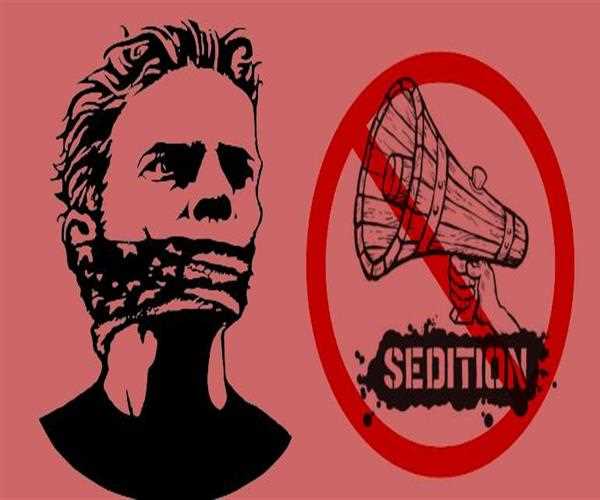In simple words, it means to express your disaffection towards the state and governed authority. In the 13th century In Britain, it was used as the device to
suppress the freedom of printing, press, and writing to express the criticism through any medium. And they made an act called
‘the Sedition Act’ 1661 and with the help of this act, they have the right to punish a person who criticized the king or the governing authority.

Sedition in India
To keep out of the criticism, almost all the countries have the provision of arrest under the law of Sedition.
Which is the
unbailable crime according to the state. Similarly in India, we have a Law related to Criticism against the government and its policies either the central or the state government.
In Hindi, it is termed as the ‘RAJDROH’ which means a crime or conspiracy against the state and its policies.
The Sedition Law in India is defined in section 124 of the Indian Penal Code (IPC) 1860.
Which may be defined as
This section states clearly that whoever by words or by written matter, by any
mode of representation, or Brings or attempt to bring into
hatred or contempt, or excite or attempt to excite the disaffection towards the government
which is established by Law. Will be punished with imprisonment up to three years and including a fine.
This section, also explains some words with the help of the definition. Here the word
‘Disaffection’ is defined as the feeling of enmity and having Disloyalty.
Under this section, also explained that the acts which will not be included in the definition of Sedition and tell that any act of showing the disapprobation towards the government and the policies of the government, will not be included until it excites the atmosphere to attract the gathering.
My opinion
This section in the Law system of India
makes it a point of hot debate and faced huge criticism. Due to this section, many of us are not able to show or write the bitterness against the government. Also, the
Chief Justice of the Supreme Court has raised this issue for reconsidering the provision because in one way or the other it is
violating our freedom of speech and freedom of expression which are our
fundamental Rights.